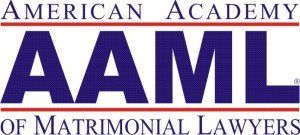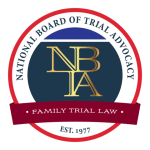RECENT NEWS
ATTORNEY MELISSA F. BROWN
BLOG SIGN UP
Blog Sign Up
MARTINDALE-HUBBELL AV RATING
SUPER LAWYERS RATING
For Potential Clients
Melissa was one of two keynote speakers at the SC Family Law Intensive CLE in Asheville, NC, the first weekend of November 2018. These are her materials provided to the participants, and the materials include case law, ethics rules & useful forms.
On Friday, September 21, 2018, Melissa F. Brown is giving the above named presentation at the popular, annual continuing legal education program, Hot Tips from SC’s Coolest Family Law Attorneys, which she also co-hosts with Vance Stricklin. The attached document is a pdf of her PowerPoint Slides.
These documents accompany Melissa’s presentation on Friday, September 21, 2018, in Columbia, SC. These forms are designed to help potential clients identify all social media and other ESI accounts so any potential issues, risks, violations of state and federal law against the potential client or perhaps accidentally by a potential client can be discussed at the initial consultation.
Melissa F. Brown amongst other prominent Family Law attorneys contributed on their favorite Mac apps in the Family Lawyer Magazine. Melissa wrote about PhoneView, a Mac app that costs $29.99, and amongst its benefits is its organization of text messages in an understandable, identifiable chronological presentation. Previously, we had to introduce cumbersome screen shots that were not always easy to follow. This program makes it much easier for a judge to read and quickly grasp the point a client wants to make regarding a text stream conversation.
Keynote presentation by Melissa F. Brown, Esq. given on November 5th at the AAML PreConference CLE, Chicago, IL.
Melissa’s articles that is part of the Summer 2014 ABA Section of Family Law Family Advocate, Vol. 37, No. 1, titled, Finances Before, During, and After Divorce: A Client Manual.
The American Academy of Matrimonial Lawyers hosted a conference this spring where Melissa Brown spoke about the topic of Safety and Security in a Digital Age. Her article, linked here provides valuable and useful information to both attorneys and clients alike.
Melissa presented this talk on July 26, 2012 at the Center for Women in Charleston, SC.
Judge Paul Garfinkel’s advice to family court litigants in child custody disputes is deservedly “going viral.” Judge Garfinkel gave Melissa permission to publish his wise words here.
Melissa Brown’s article was published in the May 2012 issue of South Carolina Lawyer magazine. This article explains the proper interaction between Guardians ad Litems and Custody Evaluators in contested custody actions.
This article provides tips about how to find and choose the right divorce attorney to handle your case, including a useful printable checklist to use during initial interviews of potential family law attorneys.
These materials were used at a presentation by Melissa on June 3, 2011, in Charleston for newly licensed attorneys who were starting to practice family law in Charleston, SC.
The South Carolina Lawyer magazine, a publication of the South Carolina Bar, published Melissa’s article titled “Safety and Security in a Digital Age” as its featured story. The article is pertinent to lawyers in all areas of law and clients alike. It includes valuable tips and information to protect oneself in this digital age.
This handout includes a list of relevant 2009 South Carolina cases as well as PowerPoint slides. These materials were presented by Melissa Brown at the Dixon Hughes PLLC Annual Litigation Conference to members of their litigation team comprised of CPAs from South Carolina, North Carolina, Florida and West Virginia. The purpose of this presentation was to educate forensic financial experts about recent case law relevant to their expertise.
Melissa provides a checklist of useful tips to protect yourself from an abusive spouse, boyfriend/girlfriend or stalker. It also includes tips to help you protect the privacy of your cell phone and computer.
This article by Melissa provides clients and potential clients with a concise, yet informative overview of the Family Court system in South Carolina.
This flow chart created by Melissa provides a visual map that explains the potential options and routes parties should consider when navigating SC’s Family Court system.
All parties involved in a Family Court action are required by the South Carolina Rules of Family Court to provide the court with a sworn financial declaration. Attached is the required Financial Declaration in Word format so you can fill it out online. (This format should also add up the columns for you.) The instructions to fill out this form are attached in pdf format.
This is a short list of some of the most frequently asked questions. The Resources button provides a much more comprehensive list of questions and answers.
This document outlines the limited nature of our relationship with the potential client during the initial consultation. This document is not a retainer agreement for our legal services. Instead, by signing this document, the potential client acknowledges that he/she is not a client of the firm until a formal retainer agreement is signed and the retainer is paid. However, this document explains that all discussions at the initial consultation with Melissa are protected by the attorney client privilege and will not be disclosed to third parties. This agreement also explains the fees for this visit.
This article written by Melissa was originally published in a local Charleston paper called
The Charleston Mercury. The article discusses the dangers public family court files pose for the litigants because critical information is open to the public. Having otherwise private information open to the public makes identity theft much easier. Since this article was written some of the laws regarding what information is available to the public in family court cases has changed. Now, it is possible to seal one’s file from the public’s eyes if your attorney files the appropriate motion and obtains a court order sealing the record or specific documents. Melissa drafted the form motions and orders for lawyers to use to protect their clients. She also published a law review article on the same subject, and she worked with the Legislature to get laws passed to protect family court litigants.
This article was published in the local newspaper,
The Charleston Mercury, in 2006. It provides a glimpse into Melissa’s life both inside and outside of her law practice.















